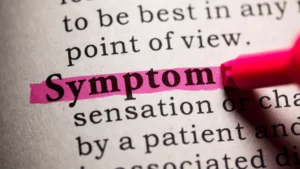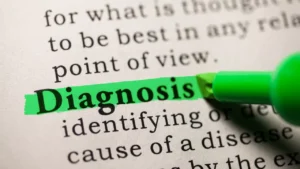By Dr. Prateek Porwal, ENT Surgeon & Vertigo Specialist | PRIME ENT Center, Hardoi UP
Last Updated: February 2026 | VAI Budapest 2025 Award Recipient
Chronic Vertigo: Management Strategies for Long-Term Balance Disorders
Chronic vertigo—persistent spinning sensations lasting weeks, months, or even years—represents one of the most frustrating challenges my patients face. Unlike acute vertigo, which may resolve in days or weeks, chronic vertigo becomes woven into daily life, affecting work, relationships, mobility, and mental health. In this comprehensive guide, I share what I’ve learned from managing hundreds of chronic vertigo cases at PRIME ENT Center, including the causes, diagnostic approaches, and practical management strategies that actually work.
What Defines Chronic Vertigo?
Chronic vertigo isn’t just “vertigo that lasts a long time.” It’s a different animal. Here’s the distinction:
- Acute vertigo: Sudden onset, lasts days to weeks, usually resolves with or without treatment
- Subacute vertigo: Lasts 3-12 weeks, may have residual symptoms
- Chronic vertigo: Lasts more than 1 month of continuous symptoms OR recurrent episodes spanning months to years
The brain’s compensation mechanisms work differently in chronic cases. In acute BPPV, you do one Epley maneuver and often it’s resolved. In chronic recurrent BPPV, you do the maneuver, it helps, but episodes return. In PPPD (Persistent Postural-Perceptual Dizziness), the brain itself becomes part of the problem, and vestibular rehab alone won’t fix it.
Main Causes of Chronic Vertigo

Image Source: Canva
BPPV Recurrence – The Most Common Chronic Pattern
Some BPPV cases recur—patients have episodes, improve with treatment, then experience another episode weeks or months later. The 50-year recurrence rate for BPPV is 50%, meaning half of patients will have another episode within 5 years. Recurrent BPPV becomes chronic when episodes are frequent enough to affect daily life.
Why recurrence happens:
- Predisposing factors remain (osteoporosis, vitamin D deficiency, sedentary lifestyle)
- Central compensation mechanisms haven’t fully corrected the problem
- New crystals form and migrate
- Age and inner ear changes continue
In my practice, patients learn to recognize BPPV symptoms and seek treatment promptly, which usually resolves episodes quickly. The key is access to someone who can perform repositioning maneuvers. After 3-4 recurrences, I discuss vestibular rehabilitation to improve central compensation and reduce future recurrence risk.
Vestibular Migraine – The Most Common Cause of Chronic Recurrent Vertigo
Vestibular migraine is increasingly recognized as the most common cause of chronic recurrent vertigo. Unlike BPPV recurrences, vestibular migraine attacks are typically triggered and somewhat predictable. Patients often identify triggers—stress, lack of sleep, certain foods, menstrual cycle, weather changes.
Characteristics of vestibular migraine:
- Episodes lasting 5 minutes to 72 hours (most commonly 30 minutes to several hours)
- Can occur with or without headache—many have vertigo as only symptom
- Often triggered by identifiable factors
- Associated symptoms: motion sickness, light sensitivity, sound sensitivity
- Prophylactic migraine medications reduce frequency 50-75%
- More common in women and family history of migraines is common
Management focuses on: preventive migraine medications (propranolol, topiramate, tricyclic antidepressants), trigger identification and avoidance, lifestyle optimization (regular sleep, hydration, stress management), and vestibular rehabilitation.
Meniere’s Disease – The Disabling Chronic Condition
Meniere’s is inherently chronic—a lifelong inner ear disorder causing recurring episodes of vertigo, hearing loss, tinnitus, and ear fullness. Most people with Meniere’s have episodic attacks initially, but the condition evolves. Early on, attacks are unpredictable. Later, they may decrease but hearing loss becomes permanent.
Meniere’s disease management involves multiple approaches:
- Dietary modification: Low-salt diet (critical for many patients; some even need <1000mg sodium daily)
- Medications: Diuretics, betahistine (evidence mixed but widely used in India), antihistamines
- Lifestyle: Stress management, adequate hydration, caffeine reduction
- Advanced options: Intratympanic gentamicin injections (destroys remaining vestibular function to stop vertigo but hearing loss continues), endolymphatic sac decompression or shunting (surgical)
- Vestibular rehabilitation: Helps with balance adaptation as condition progresses
Prognosis varies, but many patients eventually improve naturally over years as the disease progresses through stages.
PPPD (Persistent Postural-Perceptual Dizziness) – The Misunderstood Diagnosis
This is the condition most commonly confused with psychological problems and anxiety. PPPD is actually a condition of vestibular dysfunction combined with altered brain processing. The brain becomes hypervigilant about balance, amplifying any small abnormality into perceived severe dizziness.
How PPPD develops:
Often starts with an initial vestibular event (BPPV, vestibular neuritis, migraine, or even just a fall). The initial episode resolves, but the brain doesn’t “reset.” The patient becomes anxious about when the next episode will happen. This anxiety and hypervigilance actually changes how the brain processes balance information. Result: persistent dizziness even though the inner ear is now normal. The dizziness is real but the mechanism is different from peripheral vertigo.
Characteristics of PPPD:
- Persistent dizziness (not true spinning) lasting weeks to months
- Worse in complex visual environments (crowds, moving objects)
- Worse with head motion or when moving through space
- Associated anxiety and avoidance behaviors
- Normal vestibular testing despite persistent symptoms
- Improved by distraction or when attention is directed elsewhere
Treatment of PPPD requires a different approach than BPPV:
- Cognitive Behavioral Therapy (CBT): Retraining the brain’s response to balance sensations
- SSRIs or SNRIs: Antidepressants help many PPPD patients despite normal mood; they reduce anxiety and improve symptom processing
- Vestibular Rehabilitation: Different approach than for BPPV—focuses on habituation and retraining brain’s response to motion
- Graded activity exposure: Gradual exposure to triggering activities, with support
I see PPPD frequently misdiagnosed as pure anxiety. Patients are told “it’s all in your head” (which is technically true but unhelpfully framed), given anxiolytics alone, and don’t improve. Once properly diagnosed and treated with combined CBT, medication, and vestibular rehab, many improve significantly.
Bilateral Vestibular Hypofunction – The Oscillopsia Condition
This is complete or near-complete loss of vestibular function on both sides. It’s usually from ototoxicity (gentamicin for infections is a common culprit in India), autoimmune inner ear disease, or advanced bilateral Meniere’s disease.
Characteristics:
- Chronic unsteadiness, not spinning sensation
- Oscillopsia (visual blurring with head movement)
- Difficulty walking in dark or on uneven surfaces
- Not true vertigo—no sensation of spinning
- VNG testing shows reduced or absent vestibular response bilaterally
Treatment: vestibular rehabilitation to maximize remaining function, vision and proprioception compensation, safety modifications.
Vestibular Neuritis with Incomplete Recovery
Most vestibular neuritis cases improve within 3-4 weeks, but some patients have residual dizziness lasting months. This happens when central compensation is incomplete. Continued vestibular rehabilitation helps, as does time.
Diagnostic Approach for Chronic Vertigo

Image Source: Canva
For chronic vertigo, accurate diagnosis is paramount. My evaluation includes:
- Detailed history: When did symptoms start? Have they changed over time? What makes them better or worse? What’s the pattern of episodes?
- Comprehensive physical examination: Specific tests like Dix-Hallpike test, head impulse test, balance assessment, gait analysis
- Vestibular function testing: VNG/ENG to record eye movements in response to head motion and visual targets
- Hearing assessment: Audiometry to determine if hearing loss accompanies vertigo (important for Meniere’s diagnosis)
- Imaging: MRI if progressive symptoms, neurological involvement, or asymmetric hearing loss; otherwise often not needed
- Laboratory tests: Blood work if metabolic or systemic causes suspected; vitamin D level important in India
When I order MRI for chronic vertigo:
- Progressive symptoms getting worse over time
- Neurological signs (weakness, numbness, coordination problems)
- Asymmetric hearing loss (rule out acoustic neuroma)
- Red flags in history (falls, trauma, significant neurological complaints)
- Chronic dizziness lasting months without clear diagnosis despite thorough evaluation
Comprehensive Treatment Approach

Vestibular Rehabilitation Therapy (VRT) – The Cornerstone
VRT is the cornerstone of chronic vertigo treatment. Rather than masking symptoms, VRT trains your brain to compensate for vestibular dysfunction through specific, progressive exercises. Studies show 70-85% of patients improve significantly with proper VRT.
How VRT works:
- Gaze stability exercises: Keep eyes stable while head moves—improves vision during motion
- Balance training: Progressive exercises standing on different surfaces, with eyes open/closed
- Habituation exercises: Repeated exposure to triggering movements to reduce symptoms over time
- Proprioceptive training: Retraining non-vestibular balance systems (vision, proprioception)
A skilled vestibular therapist tailors exercises to your specific deficits. In my practice, I refer patients to trained vestibular physical therapists and follow their progress, adjusting medical management as needed. Home exercises between formal therapy sessions are critical—consistency accelerates improvement.
Medications for Symptom Management
Medications don’t cure chronic vertigo but can manage symptoms while VRT addresses the underlying problem:
- Vestibular suppressants: Antihistamines (meclizine) or anticholinergics (scopolamine) help some patients acutely, but should be used short-term; prolonged use delays brain compensation
- Migraine preventives: For vestibular migraine, medications like propranolol, topiramate, or tricyclic antidepressants reduce episode frequency 50-75%
- Diuretics and betahistine: For Meniere’s disease; evidence for betahistine is mixed but it remains widely used in India
- SSRIs/SNRIs: For PPPD and anxiety-related dizziness; effective even in patients without depression
- Anxiolytics: If anxiety accompanies vertigo, carefully selected anxiolytics help; however, benzodiazepines can impair vestibular compensation and require cautious use
In older adults, medication selection requires particular care due to side effects, fall risk, and drug interactions. I often use lower doses of SSRIs rather than benzodiazepines because they work better long-term and don’t impair balance.
Betahistine in Chronic Vertigo – The Indian Debate
I need to address this because betahistine is prescribed for every vertigo patient in India. Betahistine is widely used but evidence is mixed. Some studies show benefit, others don’t. It’s thought to improve blood flow in the inner ear, but this mechanism isn’t proven.
My practical experience: Some patients improve with betahistine, some don’t. If it’s helping, continue. If patient has been on it for months without improvement, consider stopping—they might respond better to other treatments. I’ve had patients on betahistine for years without improvement who did much better once we shifted to vestibular rehab and SSRIs instead.
Stopping betahistine safely: Just stop it. There’s no withdrawal effect. If you’ve been on it for a long time and it’s helped, taper gradually over weeks, but it’s not dangerous to stop.
Lifestyle Modifications – Often Overlooked
- Hydration: Dehydration worsens vertigo; maintain consistent fluid intake, especially in heat
- Sleep: Poor sleep exacerbates symptoms; establish regular sleep patterns
- Stress management: Stress and anxiety worsen vertigo; meditation, yoga, or counseling help
- Dietary changes: Meniere’s disease improves with sodium restriction; vestibular migraine improves by avoiding common triggers (MSG, aged cheeses, red wine, chocolate, caffeine)
- Caffeine, alcohol, smoking: These worsen vertigo; reducing or eliminating them often dramatically helps
- Activity pacing: Rather than bed rest, gentle, graded activity promotes compensation while avoiding overexertion
- Safety modifications: Proper lighting, removal of fall hazards, use of assistive devices when needed
- Vitamin D supplementation: If deficient (likely in India), supplement to optimal levels (50 ng/mL); may reduce BPPV recurrence
Understanding Vestibular Compensation – Why Some Improve and Others Don’t
The brain’s ability to compensate for vestibular loss determines recovery trajectory. Some people’s brains compensate quickly; others take months or never fully compensate. Factors affecting compensation:
- Age: Younger brains compensate faster
- Cognitive function: People with preserved cognitive function compensate better
- Activity level: Movement and activity promote compensation; bed rest delays it
- Motivation: Patients doing VRT exercises improve faster than passive patients
- Central nervous system health: Patients with prior strokes or MS may compensate poorly
- Dual sensory loss: Patients who are also deaf or have significant vision loss can’t compensate using alternative sensory systems
This variability is why two patients with the same condition have different outcomes. One patient with vestibular neuritis recovers in 3 weeks; another takes 6 months. Recognizing this helps set realistic expectations.
Living with Chronic Vertigo – Psychological Adjustment

Image Source: Canva
Chronic vertigo requires a long-term perspective. Recovery isn’t always linear—there will be good days and difficult days. Here’s what helps patients in my practice:
- Realistic expectations: Some conditions resolve completely; others require ongoing management. Both outcomes are acceptable—the goal is maximum function and quality of life
- Regular follow-ups: Periodic appointments (every 3-6 months initially) allow treatment adjustment and progress monitoring
- Support systems: Family, friends, or support groups provide emotional support and practical help during difficult periods
- Professional mental health support: Chronic vertigo often leads to anxiety or depression; addressing this improves outcomes significantly. Don’t hesitate to see a therapist or psychiatrist
- Advocacy for self: Becoming knowledgeable about your condition helps you advocate for appropriate care and avoid unnecessary treatments
- Celebrating small improvements: In chronic conditions, progress is gradual. Recognizing improvements in balance, reduced frequency of episodes, or increased activity tolerance maintains hope and motivation
Prognosis for Different Chronic Vertigo Conditions
BPPV recurrence: 50% within 5 years, but each recurrence responds to treatment. With vestibular rehab, recurrence risk decreases.
Vestibular migraine: Chronic but treatable. Preventive medications reduce frequency 50-75%. Some improve naturally over time.
Meniere’s disease: Varies widely. Early episodes are unpredictable and disabling. Over time, vertigo episodes decrease while hearing loss continues. Eventually many achieve stable state.
PPPD: Improves with proper treatment (CBT + medication + VRT) in 70-80% of cases, though recovery is gradual (months).
Bilateral vestibular hypofunction: Some functional improvement possible with compensation, but complete recovery unlikely. Focus shifts to maximizing remaining function and safety.
When to Seek Specialist Care
If you’ve had vertigo longer than 3-6 months without significant improvement, if your symptoms are worsening, or if your primary care doctor isn’t confident in their diagnosis, seek evaluation from an ENT specialist with vestibular focus. Chronic vertigo warrants expertise.
FAQs: Chronic Vertigo Management
What defines chronic vertigo?
Vertigo that persists for weeks, months, or years—significantly impacting daily function. It differs from acute vertigo (lasting days to weeks) in that it requires long-term management strategies.
Is chronic vertigo curable?
Some cases resolve completely. Others improve significantly with treatment. Some require ongoing management. The outcome depends on the underlying cause and how well it responds to treatment.
How long does vestibular rehabilitation take?
Most patients see improvement within 4-8 weeks. Full benefit may take 12 weeks or longer. Consistency with exercises is key—home exercises between therapy sessions accelerate improvement significantly.
Can I work with chronic vertigo?
Many people do, especially once treatment begins. Some may need temporary modifications (no heights, driving only when stable, flexible schedules). Your doctor can advise on work capacity.
Will medication fix my chronic vertigo?
Medications help manage symptoms but don’t typically cure the underlying problem. They’re most effective when combined with vestibular rehabilitation and lifestyle modifications.
Is chronic vertigo progressive?
This depends on the underlying cause. Some conditions (like some forms of Meniere’s disease) may progress without treatment. Others stabilize or improve. Proper diagnosis and management prevent deterioration in most cases.
What is PPPD and how is it treated?
PPPD (Persistent Postural-Perceptual Dizziness) is a condition where the brain becomes hypervigilant about balance. Treatment combines cognitive behavioral therapy, SSRIs/SNRIs, and vestibular rehabilitation—not just vestibular exercises alone.
Why should I avoid bed rest with chronic vertigo?
Bed rest delays vestibular compensation. Movement and activity promote the brain’s adaptation to vestibular dysfunction. Gentle, graded activity is better than immobilization.
Is chronic vertigo disabling?
It can be, but with proper treatment, most people maintain function and quality of life. Work capacity, driving, and activities depend on severity and type of vertigo. Discuss specific concerns with your doctor.
When should I consider surgery for chronic vertigo?
Surgery is rarely needed and only considered for specific conditions like severe Meniere’s disease refractory to medical treatment, acoustic neuroma, or superior canal dehiscence. Medical management should be exhausted first.
Experiencing vertigo or chakkar? Get diagnosed — usually in one visit.
Dr. Prateek Porwal, ENT Surgeon & Vertigo Specialist at PRIME ENT Center, Hardoi UP — VAI Budapest 2025 International Award recipient. Most BPPV cases resolved in the same appointment.
Call/WhatsApp: 7393062200 | Chat on WhatsApp
